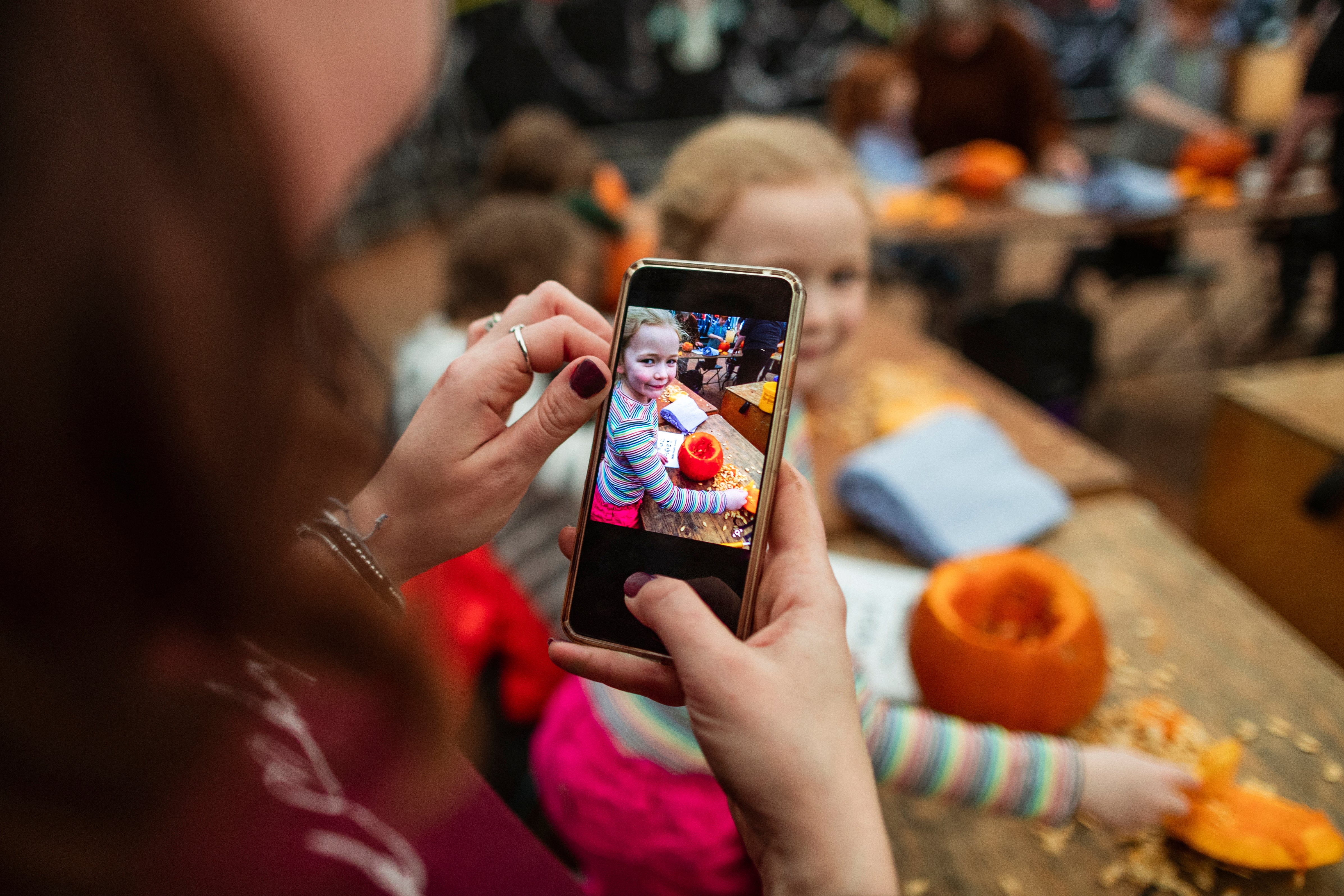‘Sharenting’ your child’s struggles online is abuse
Imagine growing up and reading a digital archive of parental rants written about you, but quite crucially, without you


Your support helps us to tell the story
From reproductive rights to climate change to Big Tech, The Independent is on the ground when the story is developing. Whether it's investigating the financials of Elon Musk's pro-Trump PAC or producing our latest documentary, 'The A Word', which shines a light on the American women fighting for reproductive rights, we know how important it is to parse out the facts from the messaging.
At such a critical moment in US history, we need reporters on the ground. Your donation allows us to keep sending journalists to speak to both sides of the story.
The Independent is trusted by Americans across the entire political spectrum. And unlike many other quality news outlets, we choose not to lock Americans out of our reporting and analysis with paywalls. We believe quality journalism should be available to everyone, paid for by those who can afford it.
Your support makes all the difference.How many strangers were invited to watch, share, or even “like” your most vulnerable moments as a child?
For those of us born before the turn of the 21st century, this is little more than a hypothetical, if not absurd, question. But for those born in the post-privacy era, where children often have a digital footprint before they are even born, it is more relevant than ever.
A typical parent will share at least 1,500 photographs of their child before the age of five, according to the London School of Economics. And over 80 per cent of children have an online presence by their 2nd birthday – years before they will grasp the concept of consent, let alone possess the ability to provide it.
The “sharenting” debate is as nascent as our relationship with social media, and clearly, there is room for nuance. There is a spectrum when it comes to the ethics of immortalising children’s lives online.
Sharing important milestones and spontaneous moments of joy, and updating close friends and family is one thing – though some may still consider this a breach of privacy if consent is not gained. This is something Gwyneth Paltrow’s daughter, Apple Martin, called her out on, commenting: “Mom we have discussed this. You may not post anything without my consent” below a selfie uploaded without her knowledge. Generation Z, the world’s first digital natives, are increasingly aware of their rights – and good for them.
Millennial attitudes are changing, too. The “Nirvana baby” who featured naked on the cover of Nevermind, now aged 30, is reviving his lawsuit against the band after it was dismissed last year, claiming the band profited from child pornography. In the early Nineties, images such as this, where an exposed infant is broadcast to the world, were few and far between; now, social media is saturated with them.
But posting about your child’s struggles online is quite different – and could be considered abusive.
Imagine growing up and reading a digital archive of parental rants written about you, but quite crucially, without you. This is a scenario that a US-based adoptive parent/carer did not have the foresight to imagine, when documenting the behaviours of the children and young people in their care on Twitter.
They described washing their little girl’s hair as “emotional labour” and stated that the 18-year-old in their care was using them as a “therapist and a crisis counsellor”. Were these musings a genuine attempt at garnering advice? Possibly. But were they necessary? Absolutely not.
Having lived through the heartache of the care system, my thoughts are with the young person concerned, who could be retraumatised if they ever stumble across these tweets. Because they are not just tweets – that makes them sound frivolous – rather, they are a commentary on private struggles in the public domain. And as always, the adult perspective is centred, with no thought to how the child or young person would feel about having their understandable attempts at forming attachments criticised.
But an emotional toll is not the only price children pay in cases of “oversharenting”. According to a forecast by Barclays, child identity fraud could cost £670m by 2030, as a result of online “sharenting”. It can happen when personal data is haemorrhaged quite innocently – a date of birth shared under birthday party photographs. Or the name of a pet – a common password reminder – openly shared.
As analytical techniques develop, future employers could utilise online data to profile candidates. The former children’s commissioner even posited that data about a child’s development aged four could play a role in their university outcome.
To keep up to speed with all the latest opinions and comment, sign up to our free weekly Voices Dispatches newsletter by clicking here
Parents need not wait years to reap the consequences of online data sharing, either. There are much more imminent risks. First day back at school photos tagged at home could identify a child’s school or address, putting them at risk of grooming, and criminal and sexual exploitation, and leading perpetrators with whom they should have no contact to their door.
What’s more, a child’s perception of boundaries can become blurred in a flurry of photographs. When your most personal moments, no matter how sanguine, are seen by people you have never met, what value is placed on privacy? What motivation is there to be selective about who you share your body or trauma with, when it can be found on a parent’s timeline anyway?
There is a double standard at play; society is rightly concerned with limiting children’s screen time and installing parental controls. The narrative is often that children put themselves at risk online, and that predators, indistinguishable from other pixelated beings, are waiting in the wings.
But the onus should equally be on parents, because predators can be found not only on Minecraft, Roblox and TikTok, but also on their adult counterparts – Facebook, Instagram, Twitter and even LinkedIn. There is no option to filter friends by the risks they pose.
In the rise of oversharenting struggles or intimate moments, one question remains: whose wishes should be privileged... the adult behind the lens (or keyboard) today, or the adults of tomorrow who must live with the content forever?
Join our commenting forum
Join thought-provoking conversations, follow other Independent readers and see their replies
Comments